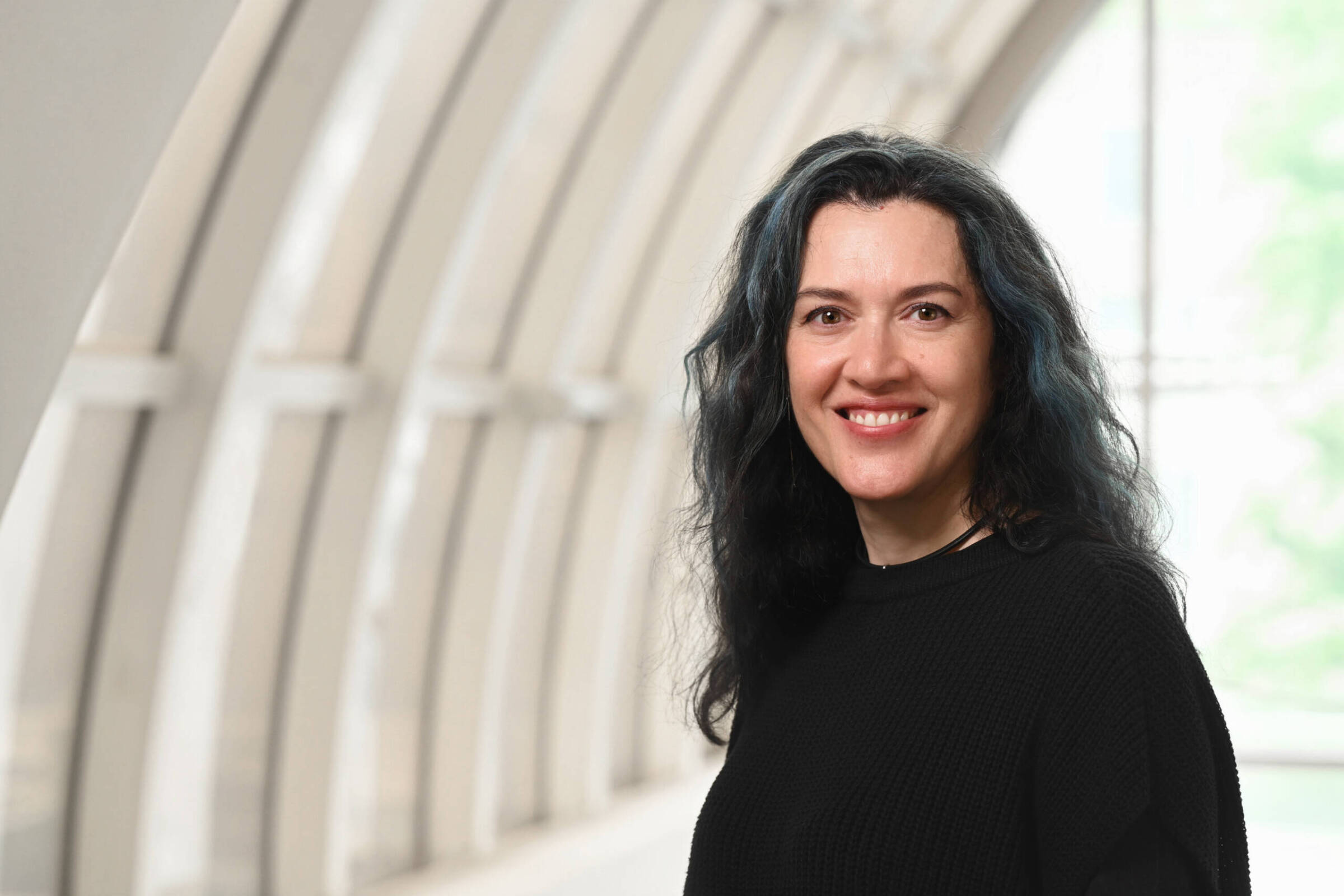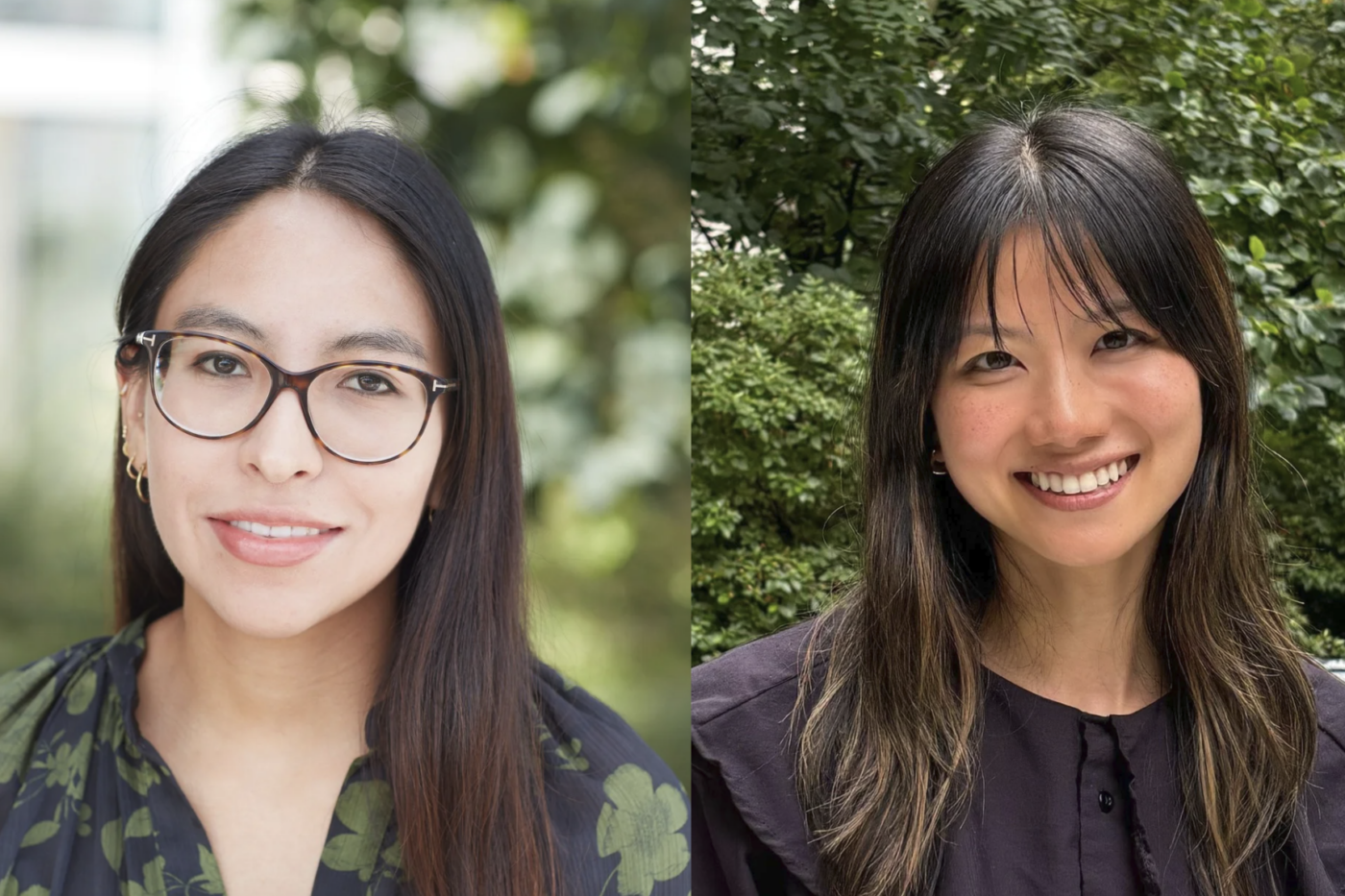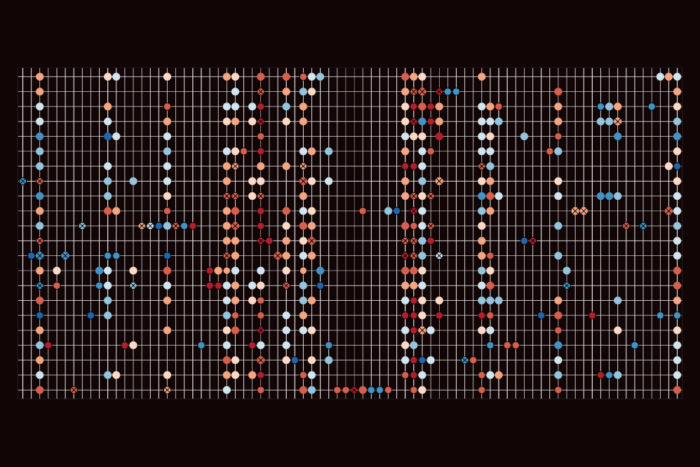Thinking like a scientist: Research assistants at Rockefeller
by Alexandra MacWade, assistant editor

Eliza Prangley works as a research assistant in Jan L. Breslow’s Laboratory of Biochemical Genetics and Metabolism. Rockefeller’s research assistants are exposed to science at the highest level and gain invaluable experience before pursuing advanced degrees and rewarding careers.
As an undergraduate, Raquel Hernandez-Solis knew she wanted to pursue a graduate degree in the biosciences. She assumed she would follow the trajectory of many of her peers: apply to schools in her senior year and begin a Ph.D. program right upon graduation. But during the summer of her senior year, she changed plans.
As a visiting student in Rockefeller’s Summer Undergraduate Research Fellowship, she learned about a unique opportunity—a job that would expose her to science at the highest level, and help her enter grad school better prepared.
For more than 20 years, Rockefeller has recruited recent college graduates to join the university’s labs as research assistants. Each spring and summer, roughly 30–50 aspiring scientists begin working alongside postdocs, grad students, and heads of labs, sharpening their research skills and learning advanced lab techniques.
“It’s a remarkable opportunity,” says Kara Marshak, senior manager of talent in Human Resources, who spends several months a year working with these undergraduates to help place them in these competitive, full-time positions. “Research assistants get hands-on experience in our labs. They’re mentored by senior scientists, their skills are enhanced, and they often emerge as incredibly strong candidates for grad school. It’s a wonderful stepping stone,” she says.
A personalized approach
Through on-campus recruiting, Ms. Marshak and her colleagues match applicants for research assistant positions with labs based on what they know the labs are looking for in combination with the candidates’ goals, backgrounds, and interests. For several months each year, they travel to more than 25 top-tier universities, where they meet prospective research assistants and gather application materials, while simultaneously considering the needs of the labs. They then work with labs to coordinate interviews for appropriate candidates. Once they have received an offer to join a lab and accepted it, research assistants typically stay in that job for two years.
“The learning curve is steep,” says Ms. Marshak, “and the two-year span is ideal since it gives the labs enough time to move their projects forward, while the research assistants gain invaluable experience.”
Brad Rosenberg, whose laboratory is focused on immunogenomics, agrees. Dr. Rosenberg, who was once a research assistant at Rockefeller, now has research assistants in his group. “It works well for everybody,” he says. “The lab benefits from the contributions, and in turn, the research assistants are exposed to new techniques and new science before moving on.”
Thinking like a scientist
“I can’t believe how fast two years goes by,” says Catherine Guariglia, who was a research assistant in Mary Jeanne Kreek’s Laboratory of the Biology of Addictive Diseases. Although Ms. Guariglia, who graduated from Trinity College before joining Rockefeller, planned to attend medical school, she wanted to take a break—albeit a productive one—between degrees.
She was immediately drawn to the Kreek lab. “My undergraduate work was clinically based, and I liked that Dr. Kreek’s research has clear implications for human health,” she says. In the lab, Ms. Guariglia had a hand in everything from performing administrative tasks to working with a senior scientist at the bench and helping to run in-patient studies at the hospital. She was involved with the lab’s ongoing efforts to find a treatment for stimulant addiction, work she found both rewarding and challenging.
Ms. Guariglia, who has begun medical school at Drexel University, credits the Kreek lab and the culture at Rockefeller with deepening her passion for research. “I learned to think like a scientist,” she says. As a research assistant, she took advantage of the university’s lecture series, attending talks by visiting investigators and Rockefeller scientists. She also feels well prepared for med school.
“When research assistants leave us, they often tell us they feel more directed, more focused, and more assured,” says Ms. Marshak. “They’re confident grad school students, and they continue to thrive, no matter what direction their careers take.”
“When we created the research assistant program in 1990, the idea was both to support our faculty with highly qualified recent graduates and to create an opportunity for aspiring scientists to participate in research being conducted in world-renowned laboratories,” says Virginia Huffman, vice president of Human Resources. “The program has grown significantly in recent years, and we’re delighted that many of our research assistants stay connected to Rockefeller as their careers develop.”
More than just good hands
“I have a clearer view of what science really is,” says Raquel Hernandez-Solis, who ended up joining Charles D. Gilbert’s Laboratory of Neurobiology as a research assistant. Although the Mount Holyoke College graduate planned to eventually pursue cancer research, she embraced the chance to explore another field.
“Working in a visual perception lab was completely different from anything I had ever done,” she says. “I was exposed to behavioral training, working with rodents, and microscopy,” she says. “During my first year, I learned something new every single day.”
Ms. Hernandez-Solis, who recently began a Ph.D. program in cell and developmental biology at the University of California, Los Angeles, says her training went far beyond lab techniques. “There’s so much more to being a successful scientist than just being good with your hands. It’s figuring out how to navigate lab politics, manage setbacks and frustrations, and enjoy that feeling you get when something finally works in the lab. I learned all of that while being at Rockefeller.”
Pizza, beer, and camaraderie
Once a month, the Rockefeller University Research Assistants group, or RURA, meets in the Faculty and Students Club to socialize over pizza and beer. The group serves as a support system for research assistants, many of whom find themselves balancing lab work with lengthy graduate school applications.
“Having this built-in community was really nice, especially in the winter months, when just about every research assistant I knew was studying for the MCAT or the GRE and filling out applications,” Ms. Guariglia says. “I liked knowing so many people who were in the same boat as me.”
At a RURA meeting at the Faculty Club last spring, Ms. Guariglia glanced over at a group of her peers, who were gathered around the pool table. “It’s bittersweet,” she said. “I’m excited for my next step, but I’ve really loved my time here.”


